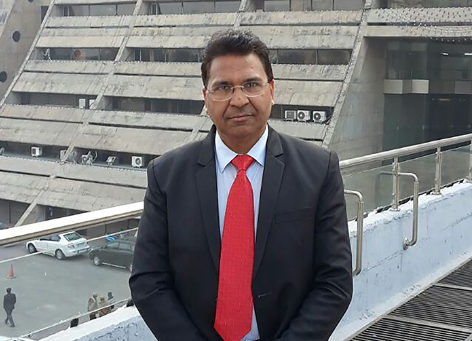Delhi Transport Corporation (DTC), the public transport operator in the country’s capital, is one of the most forward-looking STUs in the country. We spoke to Mr. C.R. Garg, Managing Director, Delhi Transport Corporation (DTC), to find out how DTC manages its operations and its plans for the future.
Excerpts:
Give us a brief outline of DTC journey and its strength.

DTC is in operation in Delhi since 1948. It was known by different names. Initially, it was known by different names. Earlier, it used to be a part of govt. of India undertaking and later came under Delhi Govt. It used be run under corporations and later came under NCT Delhi. At present, our fleet strength is 4,200 buses and all of them are run on Compressed Natural Gas (CNG). Currently, it is the largest fleet of clean fuel CNG-driven vehicles in the world.
As one of the country’s largest State Transport Undertakings, how do you manage the operations efficiently?
DTC is the lifeline of Delhi and we are working round the clock. We are carrying more than 35 lakh passenger trips daily which is even more than the Delhi Metro. So obviously we are having staff strength of 35,000. So obviously, there are bound to be challenges in managing it. But what I have seen the staff of DTC is committed and are ready to pitch in for any challenging assignments like the Odd-Even rule. All the staff were on duty well on time. NO staff was given leave during those 15 days. During both the occasions (of implementation), everybody contributed voluntarily to ensure that the buses are run seamlessly. So once we ramp up our fleet, we will be able to manage that efficiently as well.
What is the DTC strategy to tackle the shortage of skilled drivers?
We are regularly recruiting the drivers on a contract basis. It is a regular process and people are coming to us and we hire them only after examining all the documents. Fortunately, we never experience any shortage of skilled drivers and are able to run our buses as per our schedule.
With India topping list in road accidents, what is your role in promoting higher safety for passengers?
As far as DTC is concerned, we are very much concerned about road safety. We are running an in-house road safety cell which is analyzing each and every accident. We are providing refresher courses whenever any driver is involved in the accident. So we are very much concerned about the accident caused by our buses. Our accidents are quite low as compared to other transport corporations. We have won the Road Safety award in 2011 and therefore our performance has been quite satisfactory.
Recently, DTC took a major initiative towards women security. Kindly elaborate.
It was the commitment of the govt. to provide security to women in Delhi as a whole and particularly in our buses. As you have rightly said, we have installed 200 cameras for that. We are in the process of CCTV cameras in all our buses in the near future. We are also deploying marshals during the evening shift at all our buses. Apart from that, we are also planning to recruit more woman staff (conductors and drivers) so that the female passengers feel more secured while commuting.
With India typically having a tropical climate, are you planning to have more AC buses than standard ones?
Yes, we are working on those lines. Whatsoever new procurement is there, we prefer air-conditioned buses. In fact, all our buses should be running on AC because of the extreme weather conditions.
With more overseas bus manufacturers eyeing India, how do you foresee the future of the Indian bus industry?
With globalization of the bus industry, we will obviously have a better transport system. Once there is competition, even our local manufacturers will come up with better products. I think the future is very bright for the bus industry. With improving road infrastructure and rapid urbanization, the bus industry would get a leg-up to connect the various cities.